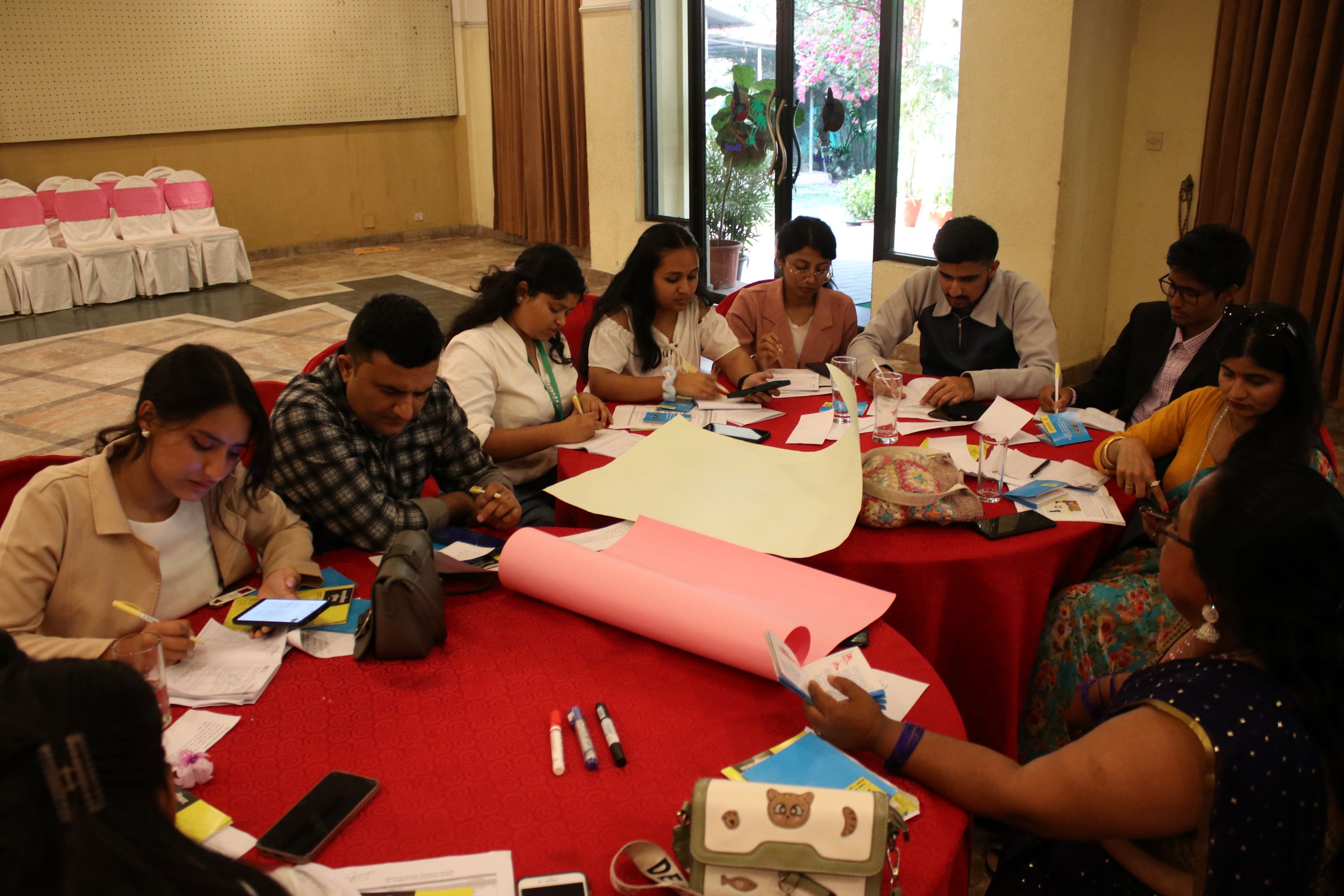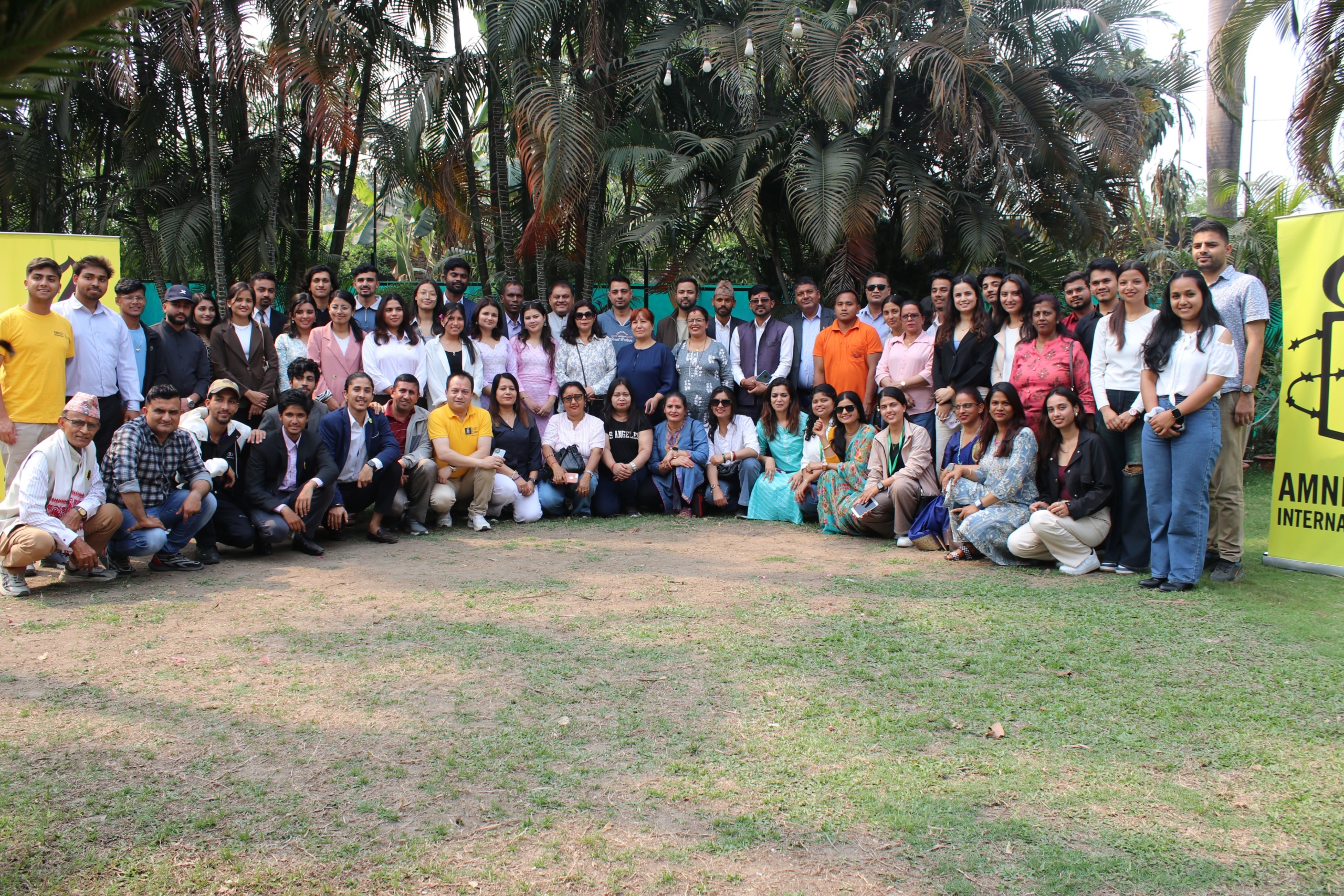With the goal of familiarising Amnesty International Nepal’s membership with the fundamentals of human rights—alongside a priority focus on combating all forms of discrimination, particularly caste-based discrimination—Amnesty International Nepal organised a National Human Rights Education Workshop on March 28-29 in Bharatpur, Chitwan. The two-day workshop brought together 70 participants from different youth networks and groups across the country and facilitated discussions, group activities, and presentations to equip participants with the knowledge and tools necessary to advance human rights education in their communities.
The first day commenced with an inaugural session, where Hom Bahadur Adhikari, Treasurer of Amnesty International Nepal’s National Board, extended a warm welcome to all participants. Highlighting the pressing need for action over rhetoric, he urged attendees to take concrete steps beyond discussions, saying, “We hope that this workshop inspires you to take what you’ve learned beyond these walls and into the grassroots. Human rights education is more than just knowledge—it is a powerful tool, especially in a time when even our most fundamental rights are under threat. Too often, discussions about human rights remain just that—discussions. But real change demands action. We must move beyond words and embody the principles we advocate. Even the smallest effort—a single person teaching another—can create a ripple effect that leads to lasting impact.”
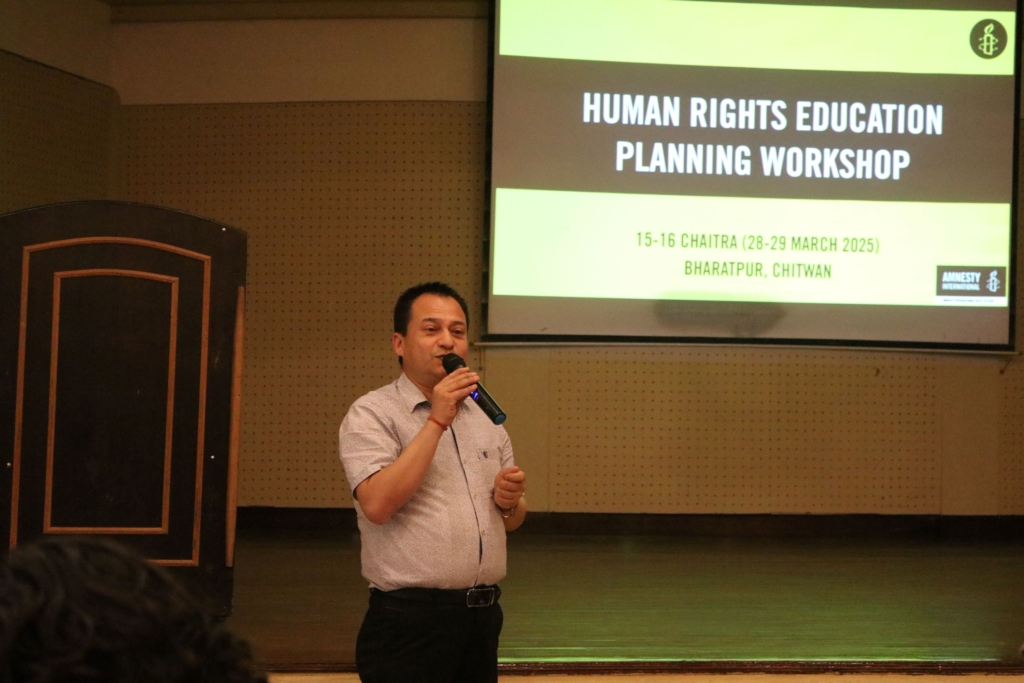
Following the inauguration, Kundan Raj Sharma, Human Rights Education Coordinator at Amnesty International Nepal, provided an overview of the two-day program, emphasising its core theme: caste-based discrimination. This systemic form of discrimination remains one of Nepal’s most deeply entrenched human rights violations, impacting marginalised communities’ access to education, employment, and justice. He underscored the need to dismantle caste-based barriers and ensure equal opportunities for all.
A subsequent sharing session provided an opportunity to reflect on the performance of Amnesty International Nepal’s youth networks and groups over the past year. Throughout the year, Amnesty members conduct Human Rights Education (HRE) sessions in schools and colleges to foster a culture of human rights among young people. To acknowledge their efforts, the most active and impactful networks/groups were recognised for their dedication.
The first day concluded with a screening of the Hindi film Article 15, which vividly portrays the harsh realities of caste discrimination in India and highlights the critical role of law enforcement in upholding justice.
The second day commenced with an interactive group work session designed to encourage participants to critically engage with the concept of caste-based discrimination keeping in mind the United Nationals Declarations of Human Rights. Led by Amnesty International Nepal’s Campaigns Coordinator, Ashmita Sapkota, the session had participants given cases to analyse and discuss the violations of specific UDHR articles. They also explored the role they could play as Amnesty activists in addressing each violation.
This was followed by an introductory presentation on the fundamentals of human rights by Kundan Raj Sharma, reinforcing the foundational principles that underpin Amnesty’s advocacy.
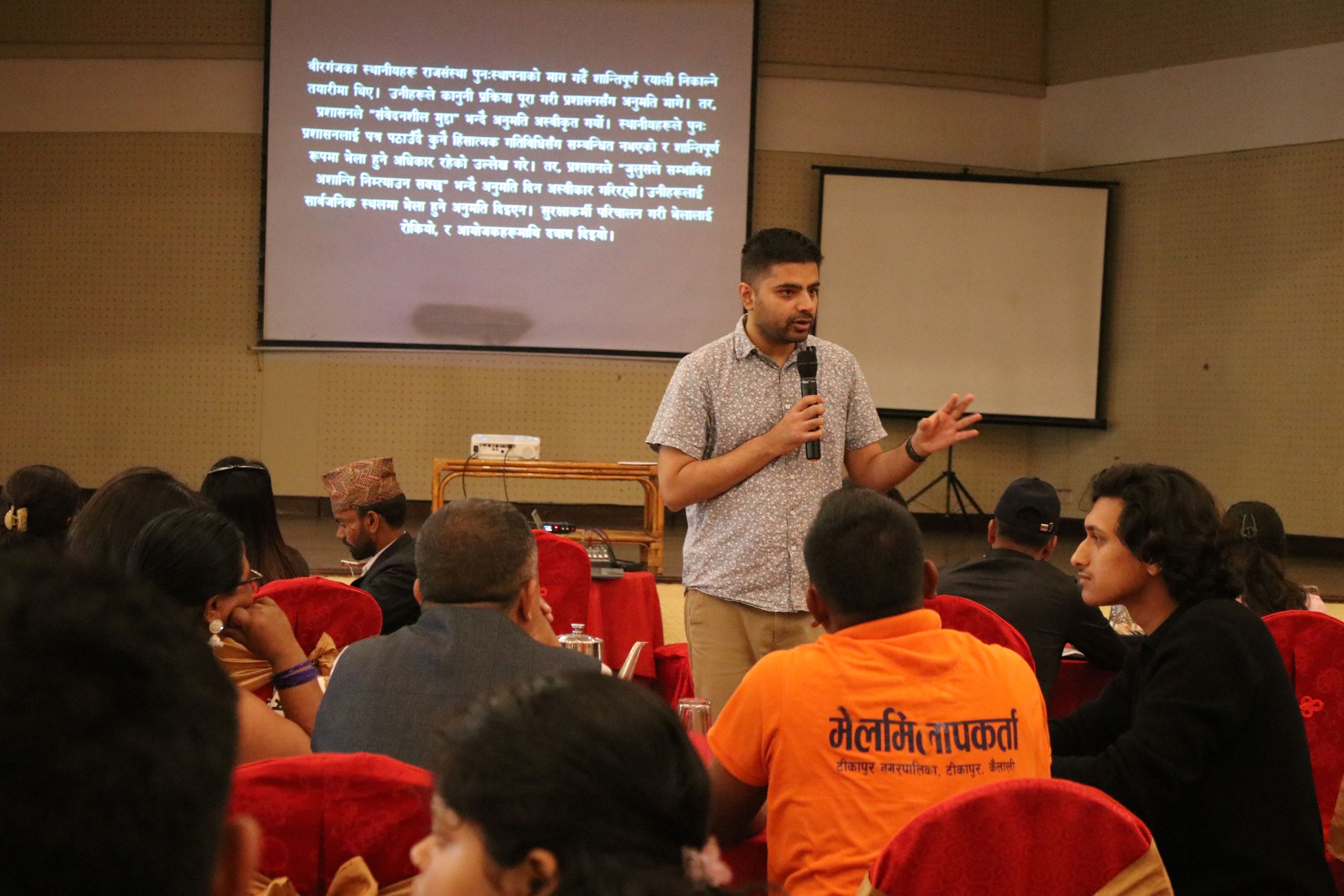
Building on this groundwork, Sharma, alongside Amnesty International Nepal’s Media and Communications Coordinator, Marissa Leena Taylor, led a session titled Introduction to Caste-Based Discrimination. The session explored both historical and contemporary manifestations of caste oppression, its far-reaching impact on marginalised communities, and the legal frameworks available to combat it. A key highlight of this session was an in-depth discussion on Amnesty’s report on caste-based discrimination in Nepal, No One Cares: Descent-based Discrimination Against Dalits, which exposes the systemic exclusion and violence faced by Dalit communities and calls for urgent policy interventions.
To further equip participants to question ingrained prejudices, a group discussion on Debunking Myths in Caste-Based Discrimination was held, facilitated by Ashmita Sapkota. This session aimed to dismantle common misconceptions and stereotypes that perpetuate discrimination, fostering critical thinking and encouraging participants to actively challenge discriminatory narratives within their own communities.
Post-lunch, participants took part in a hands-on group exercise where they were divided into teams and tasked with conducting mock human rights education sessions. This practical activity allowed them to apply their learning in real-world scenarios, refining their ability to facilitate discussions, engage diverse audiences, and communicate human rights principles effectively.
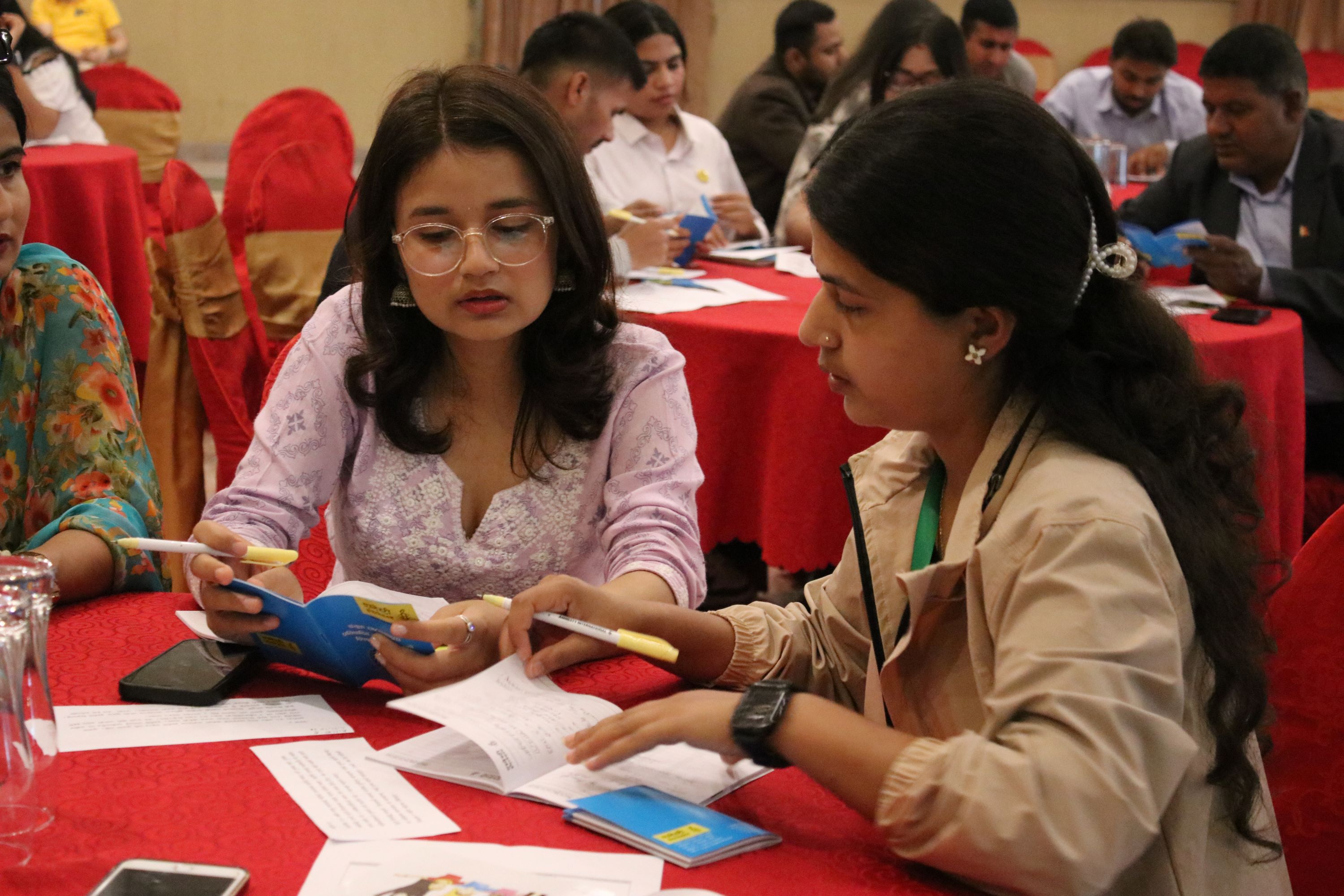
The final session focused on the pedagogy and logistics of conducting Human Rights Education (HRE). Participants explored key considerations such as selecting appropriate venues, structuring sessions for maximum impact, and adapting educational materials to suit diverse audiences.
The workshop concluded with a reflection session, where participants provided feedback and identified challenges faced in their human rights education initiatives over the past year.
Wrapping up the program, a note of thanks was delivered by AI Nepal National Board Treasurer Hom Bahadur Adhikari, who again stressed the need for human rights education to extend beyond discussions and translate into tangible action.
